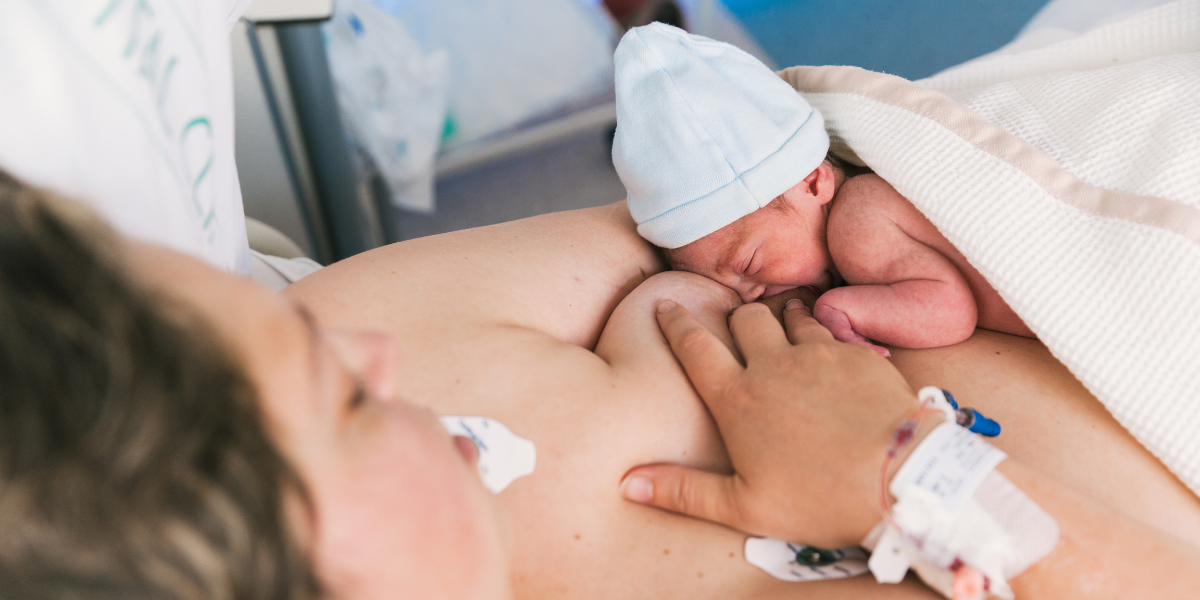The arrival of a baby is an exciting time that new parents find incredibly beautiful, but also particularly challenging. The first four weeks are particularly eventful, because mom and dad are only just getting to know their baby and its signs of hunger, sleep and closeness, for example. A particularly big topic that is central from birth onwards is baby sleep in the first month. In the following blog post, we take a look at baby sleep in the first four weeks, how much sleep your baby needs, how the waking phases are distributed throughout the day and how the sleep cycle of a newborn works. We also give you tips on how to make baby sleep as restful as possible for your newborn in the first month.
How much does a newborn sleep in the first month?
In the first few weeks after birth, babies sleep a lot and do not yet have a day-night rhythm. Infants spend most of the day and night sleeping. On average, this is 16 to 20 hours a day. However, keep in mind that baby sleep always occurs in short intervals and is interrupted by breastfeeding or bottle-feeding, short periods of wakefulness and diaper changes.
How many waking periods does my baby have in the first month?
In the first month, newborns only have short periods of wakefulness, lasting between 30 minutes and an hour. During this time, your baby is often fed or changed and there are brief interactions with the parents. The attention span is still limited and your baby gets tired quickly.
Does my baby have a sleep pattern in the first month?
In a newborn, the sleep cycle is not yet fully developed. Babies initially sleep in short intervals and cannot yet distinguish between day and night. To help your baby learn a day-night cycle, you can introduce brightness and movement during the day and keep interactions subdued at night, speak in a soft voice and only switch on dim lights.
How often do babies wake up at night?
In the first few weeks after birth, babies wake up every two to three hours. This is completely normal, because during this phase the stomach is still very small and needs food more frequently. As your baby grows bigger and older, the sleep cycle will also change and there will be phases where your baby sleeps better and, unfortunately, worse. In the third and fourth week, your baby may sleep in longer intervals and wake up less often than in the first two weeks of life.
Tips for baby sleep in the first month
Maintain lots of physical contact
After birth, your baby will feel different temperatures for the first time, the breeze on its skin, and will perceive light and darkness as well as noises and voices more intensely. What is natural for us is a completely new and exciting and perhaps even frightening experience for your baby. Your closeness with lots of physical contact makes your baby feel safe and secure, because it recognizes your voice, your heartbeat and your voice. The security that you give your baby makes it easier for it to calm down and sleep.
Use a large nursing pillow
With an XXL nursing pillow, you can not only make yourself and your baby really comfortable when breastfeeding: It also supports you when sleeping by ensuring you have a comfortable sleeping position in which you can hold your baby close to you. Our XXL nursing pillow acts as a soft baby nest for your baby or serves as a protection against falling out of bed or off the sofa.
Rest and relax
The birth was exhausting, your day-night rhythm has changed and being awake at night is challenging. Of course, the days are now much more exhausting, because your newborn wants your full attention. So it can happen that everyday life only consists of cuddling, breastfeeding, changing diapers and sleeping. That can be very exhausting. That's why it's important to rest and relax after the birth and for the next few days in the postpartum period. If possible, try to sleep when your baby is sleeping, even if that's often easier said than done. Get help from friends and family if you like, for example with housework or shopping.
Develop a routine
You will quickly notice that you and your baby develop a common routine and a kind of rhythm, because you understand each other and you learn to interpret their signs and needs. Some parents use apps to track their sleeping, waking and feeding phases. This can help you develop a rhythm and routine. To help your baby fall asleep well, try to establish a calming routine.
Baby sleep in the first month: Conclusion
Baby sleep in the first month is still completely random and challenging, but it is a temporary phase. With plenty of rest, patience, a loving environment and lots of closeness, you can help your baby to develop a kind of rhythm.






Leave a comment
All comments are moderated before being published.
This site is protected by hCaptcha and the hCaptcha Privacy Policy and Terms of Service apply.